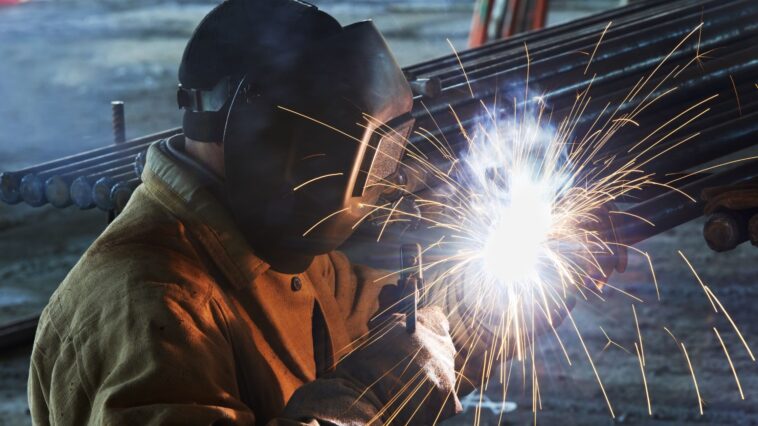Welding seems to be a functional competency in a number of industries from constructions to automotive industries. Welding electrode materials play a very crucial role in the quality and quality of a weld. When there are many alternatives, as the case with competitive products, it may look like quite a challenge deciding which one to make. It is to this that this guide is herein hoped to add by pointing out likely factors that should otherwise complicate decision-making.
Understanding Welding Electrodes
A welding electrode is a vital component in the welding process, serving as the medium through which an electric current is conducted. It creates the arc that fuses metal pieces together. Electrodes come in different types, such as consumable and non-consumable, each tailored to specific welding techniques and materials. Choosing the right electrode ensures strong, defect-free welds while optimizing efficiency.
Factors to Consider When Selecting Welding Electrodes
1. Base Metal Compatibility
The first step in selecting a welding electrode is determining its compatibility with the base metal. For example, mild steel requires a different kind of electrode than aluminium or stainless steel. The chemical composition of the electrode should closely match that of the base material to ensure a durable bond.
2. Welding Process
Different welding techniques, such as Shielded Metal Arc Welding (SMAW), Gas Tungsten Arc Welding (GTAW), and Gas Metal Arc Welding (GMAW), require specific electrodes. For instance, SMAW commonly uses coated electrodes, while GTAW typically employs tungsten electrodes. Understanding the welding process you intend to use will narrow down your choices.
3. Position of Welding
The position of the weld — whether flat, horizontal, vertical, or overhead — influences electrode selection. Certain electrodes, like E6010 and E6011, are versatile and perform well in all positions, making them ideal for complex projects.
4. Current Type
Electrodes are designed to work with specific current types, such as Alternating Current (AC) or Direct Current (DC). Some are compatible with both, while others are not. The choice of current impacts the arc stability and penetration, so it’s crucial to select an electrode that matches your welding machine’s specifications.
5. Joint Design and Thickness
The design of the joint and the thickness of the base material also play a role in electrode selection. Thicker materials often require electrodes that provide deeper penetration, while thinner materials need electrodes that offer better control to prevent burn-through.

The Role of Tools and Equipment
Welding is not just about the electrode; the tools and equipment you use significantly influence the outcome. A high-quality welding machine, proper safety gear, and accessories like clamps and wire brushes are essential for efficient and safe welding. Regular maintenance of your equipment ensures consistent performance and prolongs its lifespan. Additionally, advancements in industrial automation have introduced automated welding solutions, enhancing precision and productivity in large-scale projects.
Tips for Optimizing Welding Performance
-
Store Electrodes Properly: Keep welding electrodes in a dry and temperature-controlled environment to prevent moisture absorption, which can cause defects in the weld.
-
Practice Good Technique: Even the best electrode won’t compensate for poor welding technique. Ensure proper angle, speed, and arc length during the welding process.
-
Use the Right Tools: Invest in quality tools and equipment to complement your welding electrodes. Reliable tools enhance efficiency and reduce the likelihood of errors.
-
Inspect Welds Regularly: After completing a weld, inspect it for defects such as cracks, porosity, or undercutting. Addressing these issues promptly ensures the integrity of the structure.
The Future of Welding in Industrial Automation
Industrial automation is transforming the welding landscape, enabling greater accuracy, speed, and safety. Automated welding systems equipped with robotic arms and advanced software are becoming increasingly popular in manufacturing and construction. These systems work seamlessly with a variety of welding electrodes, offering consistent results while reducing labor costs.
Automation also minimizes human error, which is particularly beneficial in high-stakes industries like aerospace and shipbuilding. As technology continues to evolve, the integration of AI and machine learning into welding systems promises even more advancements.
Conclusion
It is crucial to choose the correct welding electrode in order to produce a good strong and productive weld. When choosing between compatible base metals, welding type, and joint configuration, there is a chance to use reason, analysis, and critical thinking. In combination with appropriate grade tools and appropriate equipment, the right electrode should also turn the job and be safe. In addition, such enhancements in industrial automation are calling the shots for the more accurate and inventive welding realm. For any user of welding, time spent in comprehending the possibilities is time well spent as quality welds will always result from your effort.
Company Name — Industrial Mega Mart
Contact no — +91–9818376733
Email id — [email protected]
Address — 42/36. Site4 Sahibabad, Industrial Area Ghaziabad, Uttar Pradesh, India
This post was created with our nice and easy submission form. Create your post!





